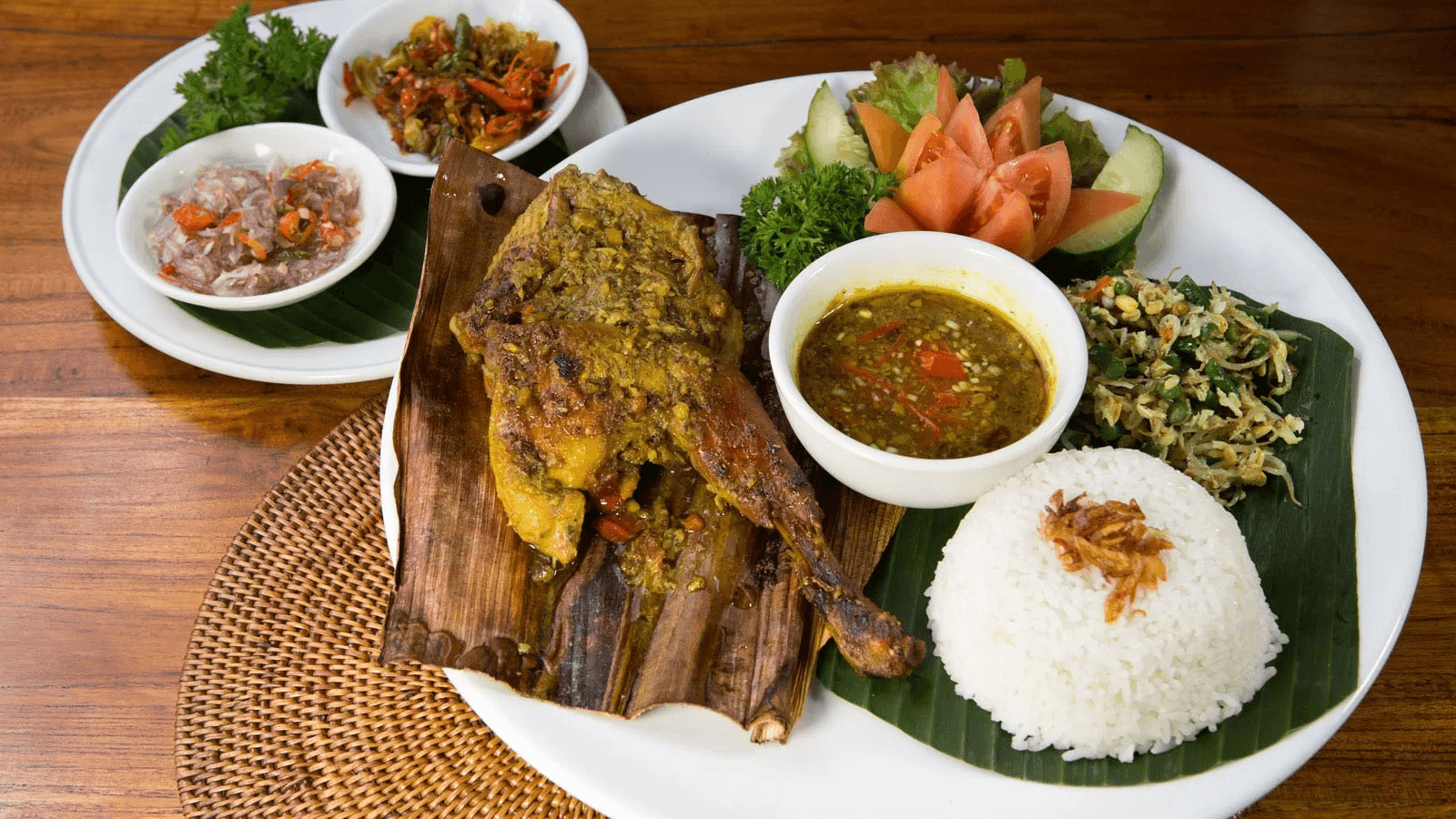The Culinary Journey: Savoring Bali's Flavors

Bali is not only renowned for its stunning beaches and lush landscapes but also for its rich culinary heritage. A visit to Bali is an opportunity to embark on a delectable culinary journey that will tantalize your taste buds and leave you craving for more. In this article, we will delve into the diverse world of Balinese cuisine, from the local dishes to the vibrant street food, and explore authentic dining experiences that will enrich your stay in Bali. For those looking to fully savor Bali's flavors, consider that staying in one of our villas can be the icing on the cake.
Local Dishes That Tell a Story
Balinese cuisine is a reflection of the island's vibrant culture and the abundance of fresh ingredients. With influences from Indonesia, India, China, and the Middle East, Balinese dishes are a delightful fusion of flavors. Some of the local dishes you must try include:
Nasi Goreng
This is the Indonesian version of fried rice, often served with a fried egg on top. It's a simple yet delicious dish that you'll find on almost every menu.
Mie Goreng
If you're a fan of noodles, Mie Goreng is a must-try. These fried noodles are often accompanied by vegetables, chicken, or seafood, and they're full of flavor.
Nasi Campur
This dish is a combination of rice, vegetables, peanuts, eggs, and a choice of meat or fish, all served with sambal (spicy chili sauce).
Bebek Betutu
For an authentic Balinese experience, don't miss Bebek Betutu, a slow-cooked duck dish. The duck is stuffed with traditional herbs and spices and is incredibly flavorful.
Sate Lilit
Sate Lilit is a unique Balinese dish where minced seafood or chicken is mixed with coconut, coconut milk, lime leaves, and coconut palm sugar. The mixture is wrapped around bamboo sticks and grilled to perfection.
Babi Guling
Babi Guling is a Balinese-style roast pork that's rich in flavor and a must-try for meat lovers. The pork is seasoned with a blend of turmeric and other spices and is roasted until it's tender and crispy and served with rice. Delicious!
Street Food Adventures
To truly explore the culinary scene in Bali, venture out into the vibrant street food markets. Denpasar's Pasar Badung and Pasar Kumbasari are excellent places to sample local snacks, from pisang goreng (banana fritters) to Martabak (savory pancakes). The local warungs (small family-owned restaurants) also offer a variety of affordable and delicious dishes.
Balinese street food is not just about the food; it's an experience. The sizzling of the grill, the aroma of spices, and the hustle and bustle of the local vendors create a sensory explosion that is truly unforgettable.
Authentic Dining Experiences
For a more refined dining experience, Bali offers a plethora of options. From beachfront seafood restaurants to traditional Balinese eateries, you can indulge in a diverse range of flavors. One of the highlights of Balinese dining is the use of fresh, locally sourced ingredients, which adds a unique touch to every dish.
Enjoy a candlelit dinner with your toes in the sand at a beachfront restaurant, where you can savor grilled seafood and exotic cocktails while listening to the gentle lapping of the waves. Or venture into the lush rice terraces and dine in a traditional bamboo treehouse, surrounded by the serene beauty of nature.
Enhancing Your Culinary Journey: Villa Accommodations
To fully immerse yourself in Bali's culinary delights, it's essential to have the right accommodation. Our private villas offer the perfect setting for a culinary adventure. With fully equipped kitchens, you can even try your hand at cooking Balinese dishes with the guidance of our experienced chefs. Shop at the local markets and bring back fresh ingredients to prepare your own Nasi Goreng, Mie Goreng, or even Babi Guling.
After a day of culinary exploration, return to the comfort of your villa, where you can relax in your private pool and enjoy a meal prepared by our in-house chefs. Dining al fresco in the serene ambiance of your villa garden is an experience in itself. The convenience and privacy of a villa elevate your culinary journey to a new level of indulgence.
In conclusion, savoring Bali's flavors is not just about the food; it's about the entire experience. From local dishes to street food adventures and authentic dining experiences, the island offers a gastronomic journey like no other. To enhance your culinary journey, consider staying in one of our private villas, where you can fully appreciate the flavors of Bali in the comfort and luxury of your own sanctuary. Come, embark on a culinary adventure and let your taste buds revel in the magic of Balinese cuisine.
Elevate your culinary journey in Bali. Book your private villa today and savor the flavors of the island like never before!